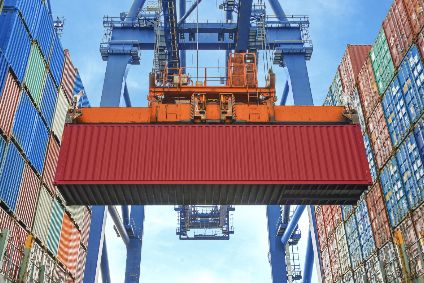
In a letter to President Joe Biden, the head of the American Apparel and Footwear Association (AAFA) Steve Lamar applauded efforts taken thus far by the administration to tackle the crisis, which includes key legislation and long-term investments in infrastructure and initiatives to combat the endemic trucker shortage which it says will pay dividends in the medium and long term to help prevent the next shipping crisis.
But Lamar says more needs to be done to alleviate the effects of the current crisis.
“We need aggressive enforcement, continued leadership to bring the full gamut of stakeholders to the table and, just as critical, immediate relief to businesses that are still struggling under epic freight costs and punitive fees, both of which are fuelling inflationary pressures.
“The shipping crisis remains dire and is actually getting worse. Shipping rates, after a brief decline, are on the rise again, hitting new records. And even when our members do get their cargo on ships, the line to get those ships into port keeps getting longer. For example, on 5 January, according to the Maritime Exchange, 167 ships were queued up in a line stretching hundreds of miles to enter the Ports of LA/Long Beach, with wait times averaging 28.2 days at the Port of Long Beach from anchor to port.
“And then it takes too long to get that merchandise. The Port of LA is reporting a record average 11.5 days to unload ships once at berth. And, despite reports of import cargo being cleared off docks, our members still can’t access their import containers, or return empty containers, yet are still being charged demurrage and detention fees for a situation that is completely out of their control.
“We have seen, and continue to see, the impact to our industry and to the US economy – empty store shelves and inflation rates not seen in decades, impacting every hardworking American family. The response to date has not worked. The ports have threatened fees, fees on long-standing import containers sitting on docks and now fees on long-standing empty containers on docks…These fees are initially charged to or ultimately passed on to our members, saddling them with even more costs even though they have no ability to rectify the situation leading to the imposition of these fees, costs that our members will, at some point, likely need to be passed to the American consumer.”
Earlier this week, Just Style reported a 10% rise in the unit price of US apparel imports in November 2021 compared to January 2021 according to data from the US Department of Commerce’s Office of Textiles and Apparel (OTEXA).
Asian suppliers’ market shares were lower than a month ago which could be attributed to the worsening shipping crisis affecting the shipping route from Asia to North America.
The AAFA is calling for immediate relief “now” through the removal of punitive tariff costs such as the 301 tariffs on China on the industry and the retroactive renewal of the Generalized System of Preferences (GSP) program and the Miscellaneous Tariff Bill (MTB) whose expiration over a year ago it says has imposed “countless billions of dollars of additional unnecessary costs on our industry and the US economy.”
“Your administration could even temporarily defer normal tariff payments, which combined with ending the Section 301 tariffs and renewing GSP/MTB, will provide a cash infusion to American businesses to enable them to keep workers, hire new workers, and reign in rising prices. We need you to take action to end the shipping crisis, and provide immediate relief, now. Our industry, and our economy, cannot afford for you to wait any longer.”



